Special Reports
FULL STORY: President Mahama’s ‘gift’ from Burkinabe contractor
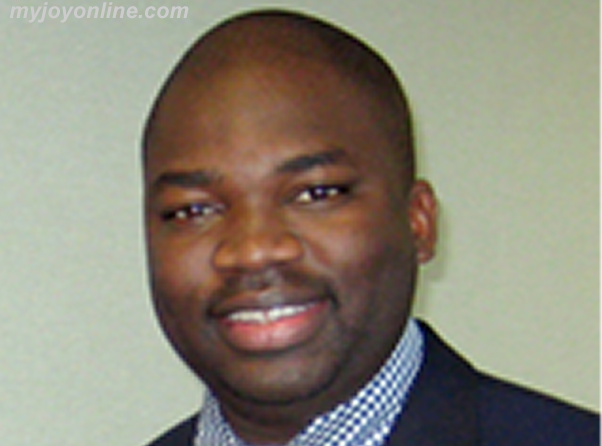
Mr. Djibril Kanazoe, a renowned Burkinabe contractor and friend of Ghana’s President John Dramani Mahama
Mr. Djibril Kanazoe, does not dispute his friendship with Ghana’s President John Dramani Mahama. That would be difficult for the President and Director-General of Groupe Kanazoe to deny because the interview is conducted in his office.
There are two photographs in his Africa Motors office in the Le Zad suburb of Ouagadougou, Burkina Faso. On the wall to his left is the painting of his late father, El Hadj Oumarou Kanazoe. On the wall to his right is the photograph of him (Djibril Kanazoe) and President John Mahama, sitting on a couch and smiling. The two met in 2010.
When his father died in October 2011, Mr. John Dramani Mahama, then the Vice President of Ghana, sent a delegation to his village in Burkina Faso to mourn with him and also make a funeral donation. That delegation included a Minister of State, Mr. Mark Owen Woyongo.
The renowned Burkinabe contractor does not shy away from talking about his closeness with Ghana’s President. What upsets him and causes him to stop the interview and seize my voice recorder is what he says is the overly probing nature of the interview.
“Where it is going, it’s too far for me,” he says. “If you tell me we want to talk about this thing, we talk about it. We finish; you jump into another thing to trap me. I won’t agree…This is a trap!” he yells and descends to the ground floor to look for his press attaché.
The day is April 26, 2016. And the time is 2:00 p.m in Ouagadougou. I’m here to investigate allegations that Mr Djibril Kananzoe used undue influence to get contracts and paid bribes to some Ghanaian officials, allegations he denies. Mr Kanazoe is the contractor who built the $650,000 Ghana Embassy fence wall in Burkina Faso. He is also the only African contractor who won part of the contract on the Eastern Corridor Road Project, one of the biggest road projects ever to be undertaken in Ghana.
The $650,000 Ghana Embassy Fence wall contract
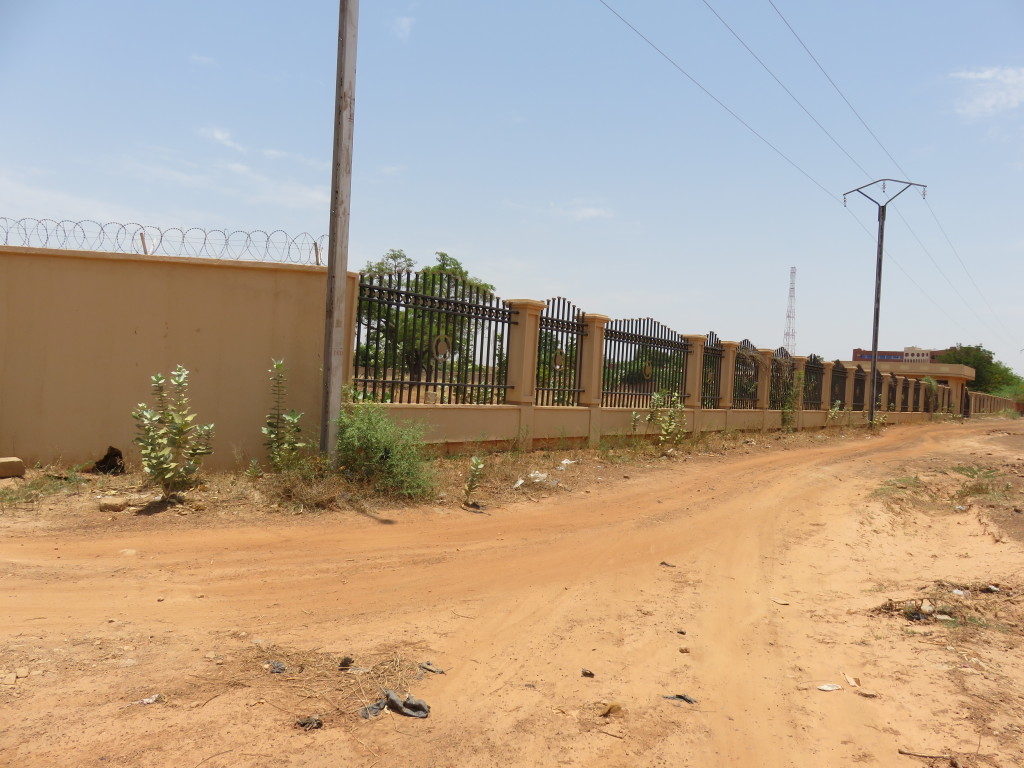
Ghana Embassy fence wall in Ouagadougou
In September 2014, when officials of Bank of Ghana (BoG) appeared before the Public Accounts Committee (PAC) of Parliament, it emerged that an amount of $656,246.48 had been spent on the construction of a fence wall over a parcel of land belonging to the Ghana Embassy in Burkina Faso. PAC ordered BoG to investigative what it termed the “outrageous” cost of the project.
When Joy News wrote to BoG in April this year to ascertain whether that probe was done, the Central Bank replied our letter, stating:
“We wish to indicate that our recall of proceedings of that day and subsequent reference to our records show that the Bank of Ghana only acted as Bankers obeying the rightful and legal instructions of its customer, the Ministry of Foreign Affairs, to transfer the said amount to the designated beneficiary and debit its nominated account. Beyond this, the bank is not privy to any processes culminating in the spending of the amount in reference.
“We, therefore, recommend that you direct your request to the Ministry of Foreign Affairs which will be better positioned to give you all the circumstances of the transaction,” the BoG letter dated May 6, 2016, and signed by Alethea Godson-Amamoo for the Secretary, concluded.
When I asked why BoG did not tell PAC that it could not undertake the investigation, a senior official at the Bank said the Bank didn’t want to embarrass the Committee. Telling them this, according to the source, would have created the impression that the Committee did not know where to direct the order for investigation.
A letter to the Ministry of Foreign Affairs and Regional Integration on the matter and subsequent follow-ups did not yield any results.
But Djibril Kanazoe says the scope of work on the wall merits the amount that was voted for the project. He says the wall, which is about the size of a football pitch, was built with two layers of blocks with concrete in-between the blocks. “It is not an ordinary wall,” he says.
Three sides of the wall are built with “blocks and concrete” while the side facing the main road is iron bars with pillars. There are two security posts at the two entrances too. The land is bare except for two old “dawadawa” trees in the middle of the plot. Mr. Kanazoe says some part of the land was leveled with soil as it was soggy.
Allegations of Procurement Breaches
According to sources close to the project, the procurement process was breached to favour the eventual winner of the contract.
When asked how he got to know about the contract, Mr Kanazoe said the Ghana Embassy in Ouagadougou wrote to his company to request for price quotations for the project. He submitted the quotes and was selected.
Ghana’s Ambassador to Burkina Faso then, Chief Dauda Mandiaya Bawumia, said he also wrote to two other contractors to submit quotations for the project, which he forwarded to the Foreign Affairs Ministry in Ghana. The Ministry, he says, eventually settled on Mr Kanazoe’s company. He (Chief Bawumia), however, does not remember the other two companies he wrote to for the quotation. Attempts to get that information from the Ministry have failed.
When asked about his alleged closeness with Mr Kanazoe, Ambassador Bawumia, admits the contractor has been his friend. “He was my friend, and he is still my friend,” he emphasised. He said he was aware at the time of the contract that Mr Kanazoe was also President Mahama’s friend. He, however, denied allegations that he skewed the procurement process to favour Mr Kanazoe.
A former Chief Executive Officer of the Public Procurement Authority, Mr. Agyenim Boateng Agyei, says a contract of that nature did not qualify to be awarded through the procurement process that was used. He said any contract beyond GH¢20,000 ought to be opened to competitive tendering. According to him, if for any reason, the Foreign Affairs Ministry of wanted to award the contract through restricted tendering, it ought to have obtained approval from the Public Procurement Authority (PPA).
Joy News contacted the PPA to find out whether the Ministry obtained any approval for the said contract, but the authority declined to give any information. A senior official of the PPA said the Public Procurement Law did not name the media as part of the institutions to which it could disclose information on public procurements. The Foreign Affairs Ministry has not yet responded to our request for information on the contract.
Dodo Pepeso-Nkwanta road contract worth €25.9million
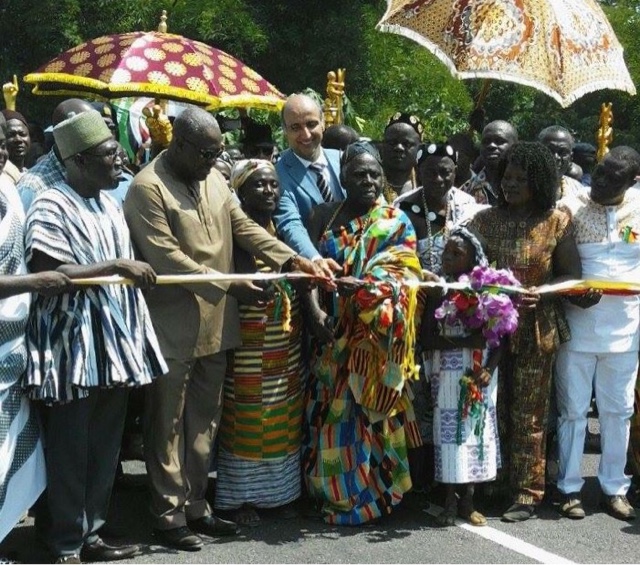
President Mahama commissions 46.4 kilometre Dodo Pepeso road
In 2012, Mr Kanazoe won the contract to construct the 46.4-kilometre Dodo Pepeso-Nkwanta road. That road was completed and inaugurated in April 2016 by President Mahama, who praised the Burkinabe contractor very highly.
“I also want to take the opportunity to thank Messrs Oumarou Kanazoe Contractors Limited of Burkina Faso for the very high quality of work they have done on this stretch of road. As I have said, perhaps, this is one of the best quality roads in Ghana today and I will urge the Minister of Road and Highways to bring other contractors to come and see so that they can emulate it in other parts of the country,” President Mahama said on April 19, 2016, when he commissioned it.
The Roads and Highways Minister, Inusah Fuseini, says due process was followed and that Kanazoe was the deserving winner of the contract.
Contrary to President John Mahama’s claim that Dodo Pepeso-Nkwanta road “is one of the best quality roads in Ghana today”, checks on the newly commissioned road revealed that sections of the road had developed defects as shown in these photographs below:
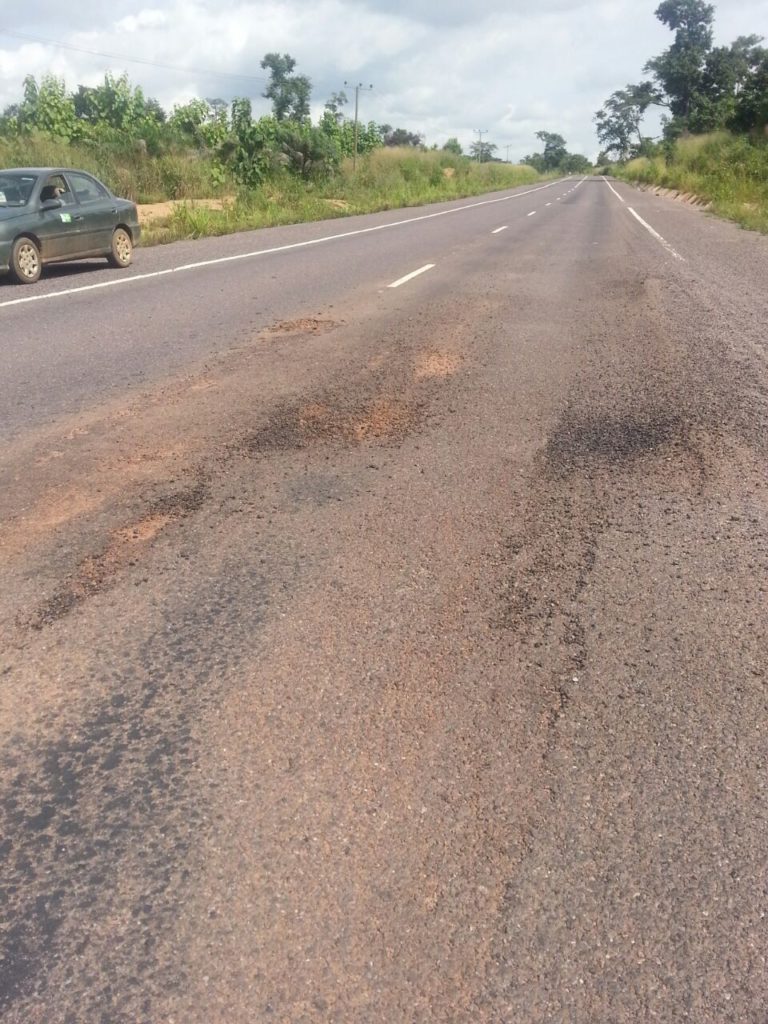
The road constructed by the Burkinabe contractor , Djibril Kanazoe and praised by President Mahama
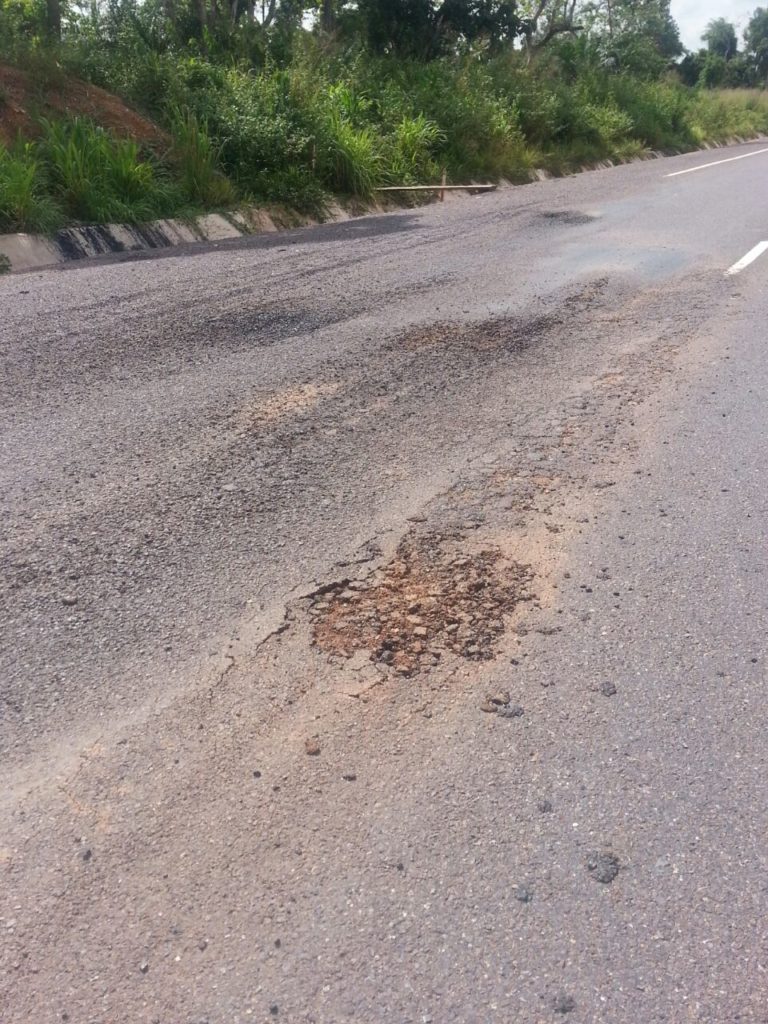
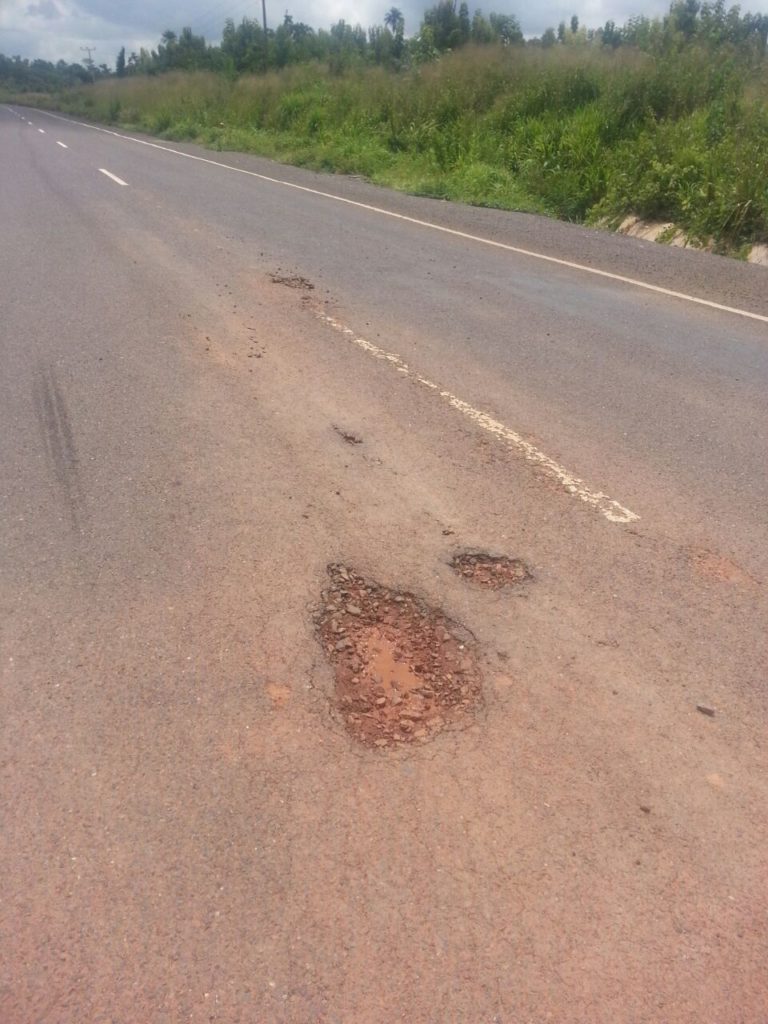
GH¢82 million sole sourcing contract
The Ministry of Roads and Highways is in the process of awarding Oumarou Kanazoe Construction Limited a contract worth GH¢82million on single source procurement basis.
Sector Minister, Inusah Fuseini, says the Burkinabe contractor is being handpicked for the 28-kilometre road project because of the quality of the road and the fact that he is near the project site. He said moving from Burkina Faso to the Hamile area will be easy for the contractor whose tools and equipment are in Burkina Faso.
Another reason Inusah Fuseini says Kanazoe is being considered for the project is the fact that he constructed the Burkina Faso-Hamile stretch of the road and was familiar with the terrain.
According to Section 40 of the Public Procurement Law, the minister’s reasons do not form part of the conditions that allow for the award of contracts through sole-sourcing. This raises more questions why this method is being used especially when the beneficiary is the contractor who gave President Mahama a brand new Ford Expedition SUV.
The Ford Expedition “Gift” to President Mahama
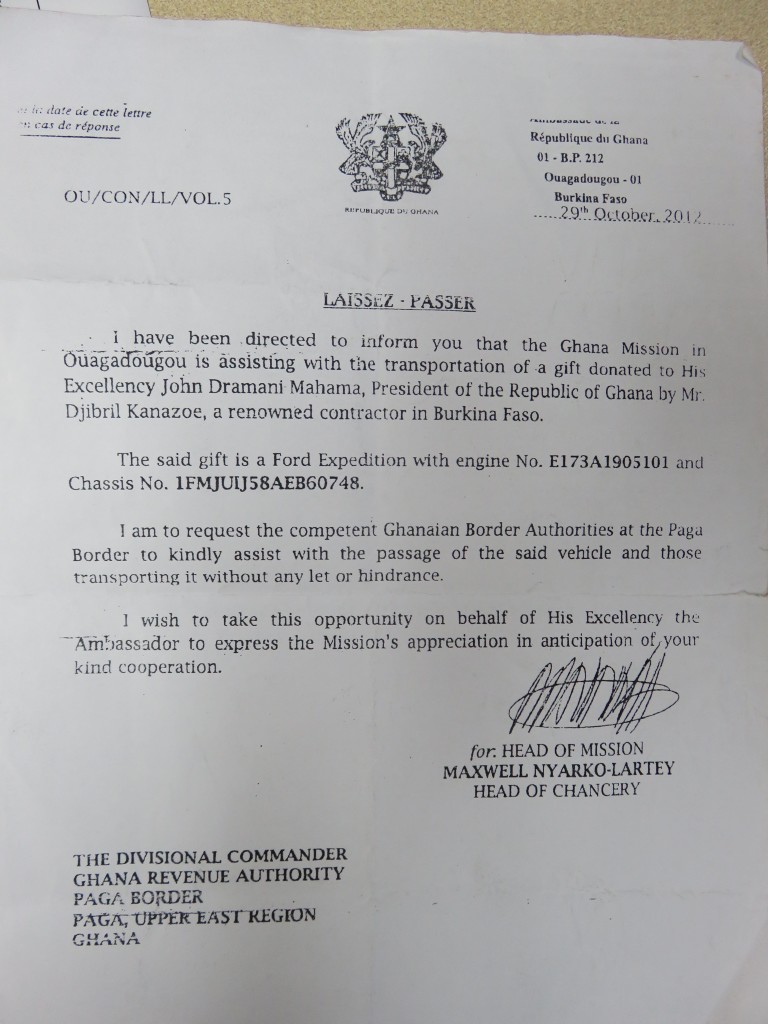
There is evidence that the contractor gave a brand new Ford Expedition (2010 model) as a “gift” to President Mahama in 2012, the year he won the two contracts in Ghana.
After justifying the cost of the wall project and defending the process through which he secured the contracts, I ask Mr Kanazoe: “There was this vehicle you gave in 2012 – that was a Ford Expedition – was it meant for the ambassador or it was meant for the President?”
“That one, I’m not aware of that one. I’m just aware of the wall,” he denies.
“But you also gave a Ford Expedition car to the Ambassador, and I want to know who it was intended for,” I asked again.
“No, I did not give a Ford Expedition to the Ambassador,” he says. “If you have a letter showing that I gave a car to the ambassador, show me.”
I show him the letter. It is a Laissez-Passer dated October 29, 2012, and signed by the Head of Chancery at the Ghana Embassy in Burkina Faso, Maxwell Nyarko-Lartey, for the Head of Mission. The letter, which was addressed to the Divisional Commander of the Ghana Revenue Authority (GRA) at the Paga Border, reads in full:
“I have been directed to inform you that the Ghana Mission in Ouagadougou is assisting with the Transportation of a gift donated to His Excellency John Dramani Mahama, President of the Republic of Ghana by Mr. Djibril Kanazoe, a renowned Contractor in Burkina Faso.
“The said gift is a Ford Expedition with engine No. E173A1905101 and Chassis No. 1FMJUIJ58AEB748.
“I am to request the competent Ghanaian Boarder Authorities at the Paga Border to kindly assist with the passage of the said vehicle and those transporting it without any let or hindrance.
“I wish to take this opportunity on behalf of his Excellency the Ambassador to express the Mission’s appreciation in anticipation of your kind cooperation.”
When I read the letter to Mr Kanazoe, he admits sending the vehicle to President John Mahama but insists the vehicle he sent was a gift and not a bribe.
“Did you give a ‘gift’ to the President?” I asked for emphasis.
“Yes!” he answered. “This is the Ford Expedition I sent to the President in 2012 as a gift,” he says pointing to the letter.
“What did the President do to deserve a gift,” I ask.
“He is my friend.” He stops the interview at a point I ask how he became friends with the President. When the recorder is off and as we argue on the interview, he reveals how he and President Mahama became friends. That part of the conversation is captured by a secret camera.
How the contractor and the President became friends
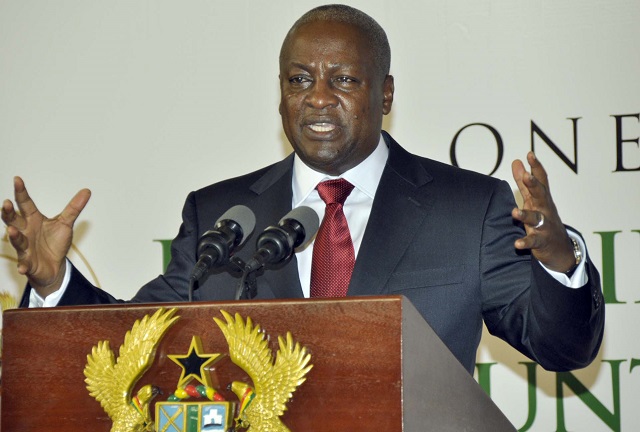
President John Mahama
Mr Kanazoe reveals that his friendship with President John Mahama started when he wanted a road contract in Ghana, but failed to win the bid.
“I have been going to Ghana since 2003. The people from Mechanical Llyod, somebody was my friend there. My friend helped me to set up this company [Africa Motors in Burkina Faso]. His name is Morkporkpor. My friend’s friend is Mike Aidoo. He is a contractor – Mikado. When we went there, he told me to come and do the roads in Ghana because he had seen the work I have done here [in Burkina Faso],” he told me.
“So we made the first tender. When we made the tender, we didn’t win. One day he told me he knew [sic] the Vice President [John Mahama] so let’s go to salute [greet] him. We went to salute him and I show [sic] him what we does [sic] in Burkina Faso. And we became friends. We talk a lot! We talk a lot. One day my father died, he sent a delegation to my village to salute the family,” he said.
It is not clear how that friendship with the Vice President influenced his later bids for contracts in Ghana but there is evidence that he had at least two contracts in Ghana – the embassy fence wall and the Eastern Corridor road project.
Tracking the Ford Expedition “gift” to the President
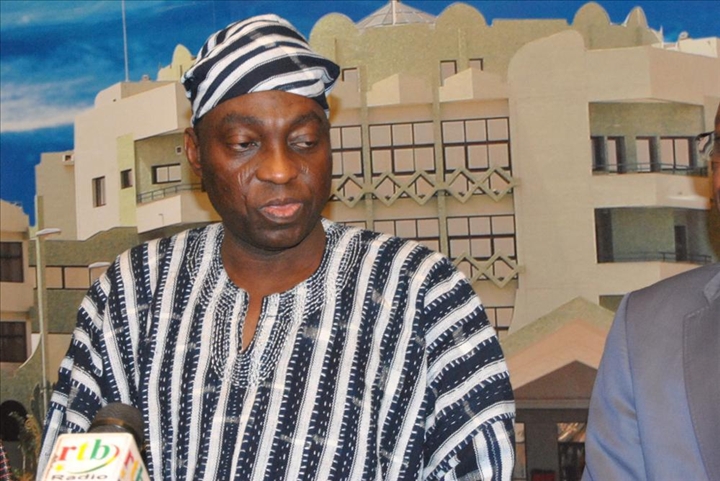
Chief Dauda Mandiaya Bawumia
Ambassador Bawumiah, accompanied the vehicle from Ouagadougou to Bolgatanga and handed it over to then Upper East Regional Minister, Mr Woyongo, to be sent to President Mahama in Accra. Ambassador Bawumia has confirmed this. “I believe he would have handed it over to the President,” he said.
Mr. Woyongo could not be reached for comment but Mr Kanazoe said President Mahama acknowledged receipt of the vehicle.
“He called and said thank you very much,” the contractor said.
Joy News investigation has revealed that the said Ford Expedition entered Ghana on October 29, 2012, with one Quedraogo Cheik Mohammed as the importer. The Ford Expedition was declared as a “used” vehicle and cleared in Tema on February 13, 2013, by Vision Logistics Limited, a private clearing agent. The Customs Declaration Number of the vehicle is given as 420130771843/0.
It is not clear why the vehicle was declared as a used vehicle. The giver of the gift, as well asAmbassador Bawumiah who facilitated the transportation of the Ford Expedition to Ghana, said the vehicle was a brand new one. A source at the Customs Division of the GRA said sometimes goods are under-declared in order to reduce the value of import and the duty to be paid.
A duty of GH¢23,646.41 was paid on the vehicle. All other details of the vehicle, including receipt numbers, are captured except the registration details at the Driver and Vehicle Licensing Authority (DVLA). The person in whose name the vehicle was registered as well as the vehicle’s registration number are not found in the system of the DVLA when Joy News checked. According to highly placed sources within the DVLA and the Customs Division of the Ghana Revenue Authority, the absence of details meant that the vehicle had either not been registered, or that the registration details were deliberately deleted from the records of the DVLA.
According to some highly placed sources within the DVLA and GRA, the absence of details meant that the vehicle had either not been registered, or that the registration details were deliberately deleted from the records of the DVLA.
No “responsible Leader” would accept such gift – Daniel Batidam
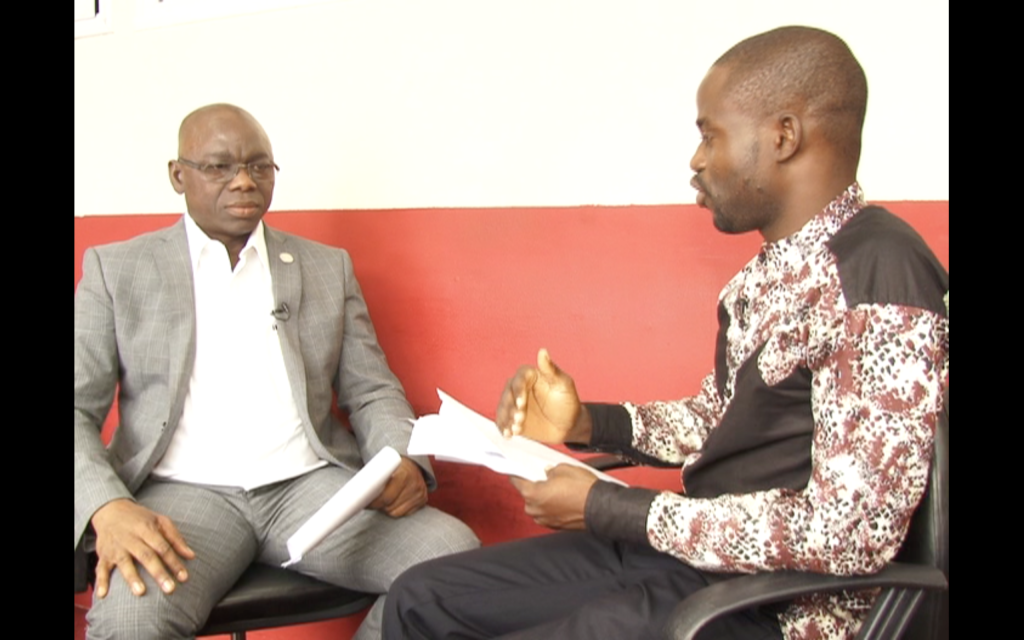
Manasseh Azure Awuni interviewing Mr. Daniel Batidam
According to President Mahama’s code of ethics for ministers and political appointees, gifts that are to be accepted without any conditions should not exceed GH¢200 ($50). Sources close say the vehicle is valued over $100,000.
Mr. Daniel Batidam, the Advisor on Governance at the Office of the President, is of the view that “the motivation for a gift is even more important than the quantum.” He believes if motivation is to influence the public official, the quantum of should not stop people from questioning the gift.
Mr. Batidam, an anti-corruption crusader who once headed the Ghana Integrity Initiative (GII), also advises the President on corruption. He is the key person who speaks on corruption at the Presidency. I did not tell him I was investigating the conduct of the President at the time of the interview.
I asked Mr. Daniel Batidam that if the President sought his advice on whether or not to accept a gift with the value of about $100,000 from a contractor who does business with the government, what his advice would be.
He smiles and replies, “Well, I’m sure you know that these are not situations that would occur in reality in terms of the kind of president we have.”
“It’s a hypothetical situation,” I tell him.
“I think it’s obvious. It’s obvious that any leader, any president: not even a president, a minister; a responsible public servant would know that that situation could put him in a situation of not only conflict of interest but potentially being corrupted.
“And so I think it goes without saying that you cannot take gifts from sources that have the potential of influencing your decision making. It’s not acceptable. I think a responsible leader, minister [or] senior public servant would not need to be advised on that.”
Is the President’s “gift” a bribe, conflict of interest or both?
Article 284 of the 1992 Constitution of Ghana states, “A public officer shall not put himself in a position where his personal interest conflicts or is likely to conflict with the performance of the functions of his office.”
According to the Commission on Human Rights and Administrative Justice (CHRAJ) Guidelines on Conflict of Interest, “A conflict of interest occurs when the promotion of the private interest of the public official results or is intended to result or appears to be or has the potential to result in the following: (a) an interference with the objective exercise of the person’s duties; and (b) an improper benefit or an advantage by virtue of his/her position.
President John Mahama’s “Code of Ethics for Ministers and Political Appointees” also states among other things that a conflict of interest “may arise if a Minister’s family or personal friends might derive, or be perceived as deriving some personal, financial or other benefits from a decision or action by the Minister or the Government.”
According to Mr Batidam, all the provisions on conflict of interest by CHRAJ, the President’s own code of Conduct and the Conduct of Public Officers’ Bill 2013, are binding on the President.
“These minimum standards apply to all public officials at all levels, including the President. The President is the number one public official of the land, so anything that has to do with the conduct of public officials begins and ends with the President,” he says.
On gifts, Section 21 (b) of Conduct of Public Officers’ Bill 2013 states: “A public officer shall not accept a gift, a favour or an advantage, that has the potential to influence the proper discharge of the public officer’s functions or judgment, from a person with whom the public officer comes into contact in relation to the public officer’s functions.”
President Mahama’s Code of Ethics stipulates: “To avoid the creation or appearance of an obligation, gifts in cash or kind are not to be solicited or accepted from a commercial enterprise or any other organisation. An exception to this would be the acceptance of a presentation made during a visit to an organisation.”
Even though Mr Kanazoe says he gave the gift in his private capacity to President Mahama, Mr Batidam says “that is even worse. When it comes to personal gifts, what would be the motive?…So long as they are interacting with the public official in their public capacity it is grounds enough to question whether it is acceptable or not.”
Mr. Batidam says the private sector, which “ is the supply side of corruption,” often has motives for which they want to give gifts to public officials.
“If there are grounds to believe that or if it is common knowledge that the person bringing the gift has an interest that could have motivated the gift in the first place, then it is obvious that the receiver, public servant, be he president, [or] minister should exercise better judgment and say, ‘I can’t take this gift.’”
He said a gift to the President by a contractor “qualifies as a conflict of interest situation… The fact that there is a potential for people to believe that you are getting the contract because you are giving gifts, it’s not something we can rule out.”
A gift can be bribe
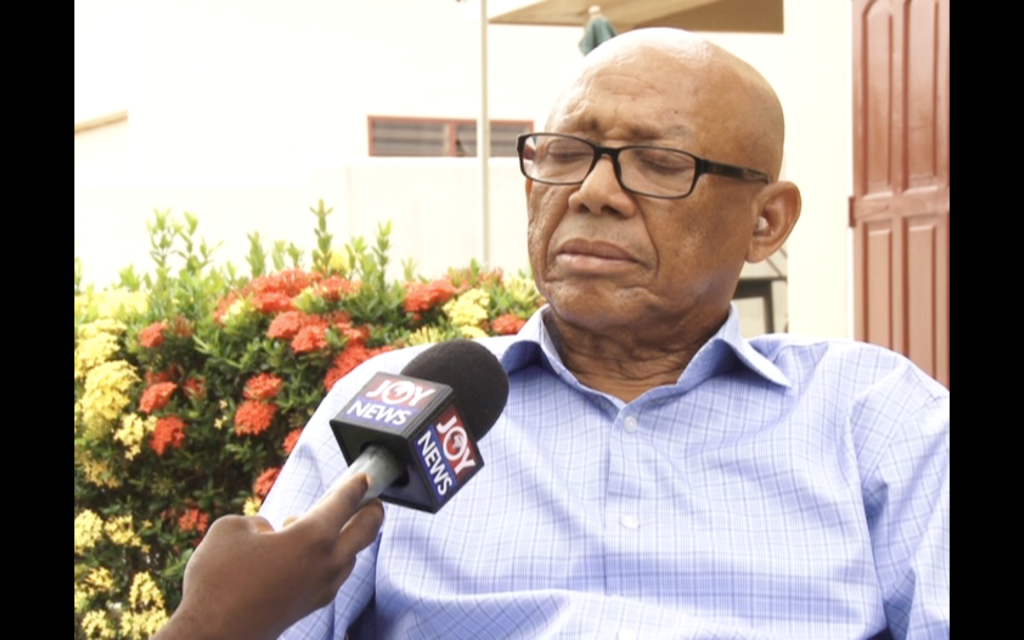
Explaining the concept of conflict of interest and gifts to public officials, a former Commissioner of CHRAJ, Justice Emile Short, says there is a thin line between a gift to a public officer and a bribe.
“Gifts can be given to public officers to influence them in the exercise of their duties,” he tells me in an interview. “Even the guidelines issued by CHRAJ talk about accepted and prohibited gifts because that is one way in which people can bribe a public officer to influence the exercise of his or her functions.”
As a Commissioner of CHRAJ, Justice Short recalls he once ruled that a gift that was given to a public officer was a bribe: “The MD of Ghana Reinsurance Company had accepted $96,000 for changing the insurance broker of Ghana Airways Limited. The public officer thought it was a gift; he had succeeded in getting a better deal for the Ghana Airways, but we held that it was a bribe. It wasn’t a gift and it cannot be a gift,” Justice Short says.
“If the gift is given with the intention of influencing the exercise of the public officers duty, then obviously, it is a bribe,” Justice Short emphasises. But whose duty is it to ascertain the motive for the gift? The various codes of conduct mentioned above and the CHRAJ Guidelines on Conflict of Interest place that responsibility on the public official.
According to Mr Batidam, it is the duty of “all responsible public officials – ministers, appointees, senior public servants – to examine the motives for which gifts are brought to them. It would be unacceptable for me in a certain position to say that I do not understand or I didn’t know that the gifts being brought are meant o influence me.”
Justice Short says gifts and conflict of interest are a form of corruption. Mr Batidam holds the same view.
“If a conflict of interest is not corruption, what is corruption then? If you’re in a conflict of interest and also are found to have abused your office and yet you are not corrupt, what is corruption? We define corruption as an abuse of entrusted of power,” Mr Batidam said.
Best Practices elsewhere
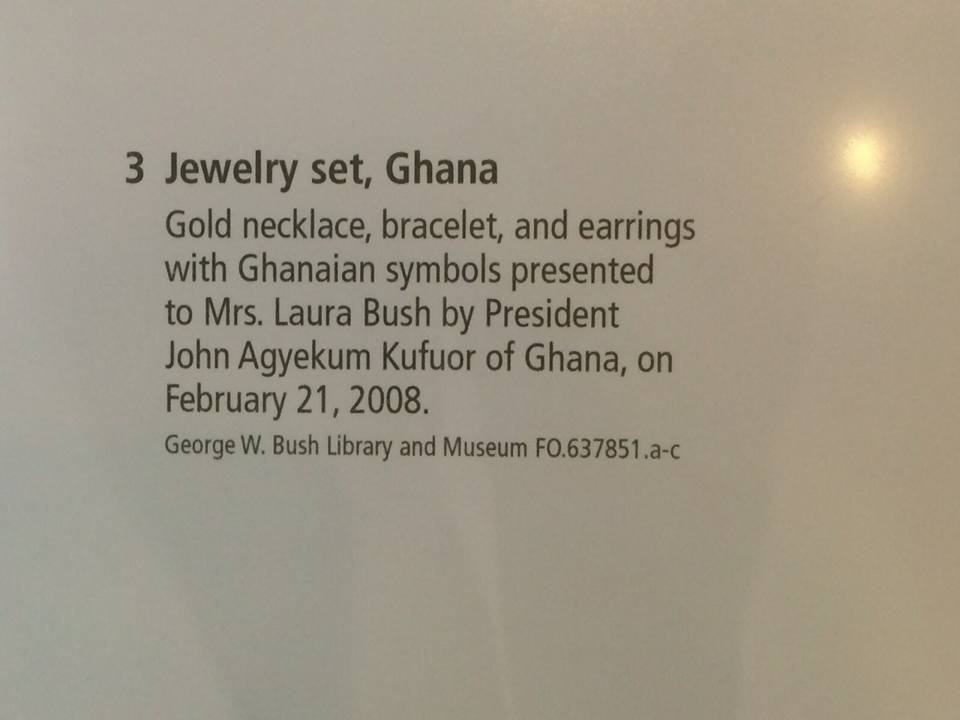
Gift given to Mrs Laura Bush when she visited Ghana displayed in the George W. Bush Library and Museum
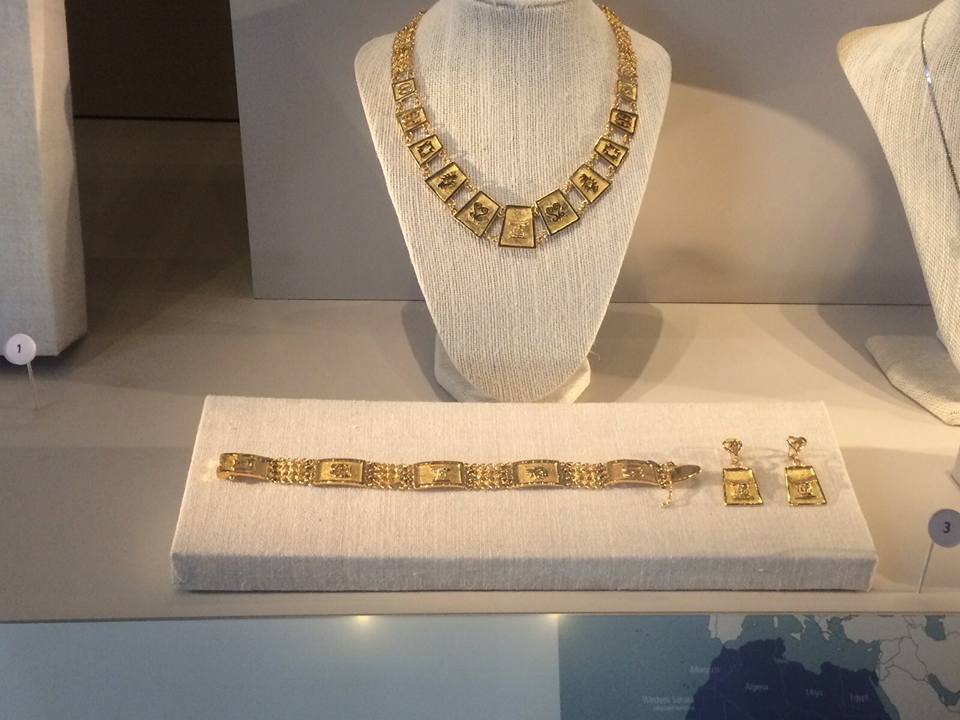
Daniel Batidam is of the view that if the fight against corruption can yield any meaningful results, then issues of gifts, conflict of interest and codes of conduct must be taken seriously. He says in advanced democracies, such standards and transparency have helped to minimise corruption.
Even though he cannot categorically tell if there is a transparent way of declaring gifts that are given to public officers in their public capacity, he says the problem dealing with prohibited gifts to public officials in Ghana is that such gifts are not given transparently.
In the United states, for instance, one can find all the accepted gifts given to the US Presidents and their spouses on their foreign visits, on the website of the Protocol Gift Unit of the US Department of State. The gifts, their estimated value and the reason why the Presidents or their spouses did not reject the gifts are declared and recorded.
In 2008, President John Agyekum Kufuor gave a Gold necklace, earrings, and set of bracelet with Adinkra symbols to former First Lady Mrs. Laura Bush when she and her husband visited Ghana.
The gift was Recorded on 2/21/2008, and its estimated value was given as $2,000.00. The reason for accepting the gift was: “Non-acceptance would cause embarrassment to donor and U.S. Government.” Today, that gift can be found in the George W. Bush Library and Museum in Dallas, Texas.
Can one find official gifts which Ghanaian Presidents and their spouses receive in their foreign trips?
Mr Batidam says there ought to be a register of a sort to record them but he is not sure if one exists. For gifts from contractors and private individuals, he says there is no transparency in how they are given so it is difficult to track and assess them.
Can the President influence award of contracts?
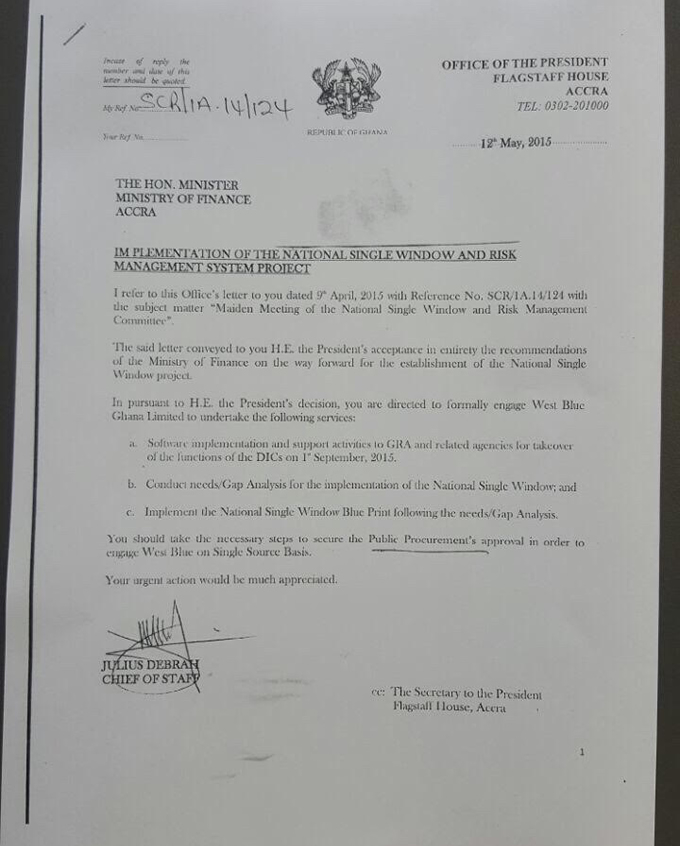
A leaked letter from the Office of the Presidency that shows President Mahama’s had a say in the West Blue contract
In a recent interview with the BBC which President Mahama denied ever accepting a bribe, the President also said he had never involved himself or his office (the Presidency) directly in any public procurement deal. But a leaked letter in the controversial contract awarded to West Blue Limited seems to contradict this claim.
In the leaked letter, the Chief of Staff, on instructions of President John Mahama, ordered the Finance Ministry to take steps in appointing West Blue Company as a new company to operate a national single window at the country’s ports.
The letter dated May 12, 2015, said: “In pursuant to his Excellency the President’s decision you are directed to formally engage West Blue Ghana Ltd in undertaking the following services;
1. Software implementation and support activities to GRA and related agencies for a takeover of functions of DICs on 1 September 2015.
“…You should take the necessary steps to secure the Public Procurement Approval in order to engage West Blue on Single Source basis,” the letter said.
No need for proof or evidence
Justice Emile Short says in matters of conflict of interest, “it’s not necessary to prove that the public officer’s exercise of his or her duty or her duty or function has been influenced but if the conduct appears or has the potential to give that impression, then it also constitutes a conflict of interest.”
Daniel Batidam, on the other hand, is of the view that if there is a conflict of interest, there are still grounds to question how a contractor won a contract even if the procurement procedure was followed.
“That is why the whole issue of examining contracts becomes a tricky thing. Sometimes those who win contracts, you go and they say we wanted the lowest [bidder] and we got the lowest. But what did it take, what did it cost to make that the lowest bidder. Sometimes it meant something that is hidden.
“Between the supply and the demand, the private sector and the public sector… contractors who bribe – well, let’s say they give gifts that could amount to bribe – It’s a very thin line. That’s why some of us believe that the issue of bringing proof is impossible…because when they say bring proof and the proof is with the one you seek to or allege to be corrupt, that can be a herculean task.”

-
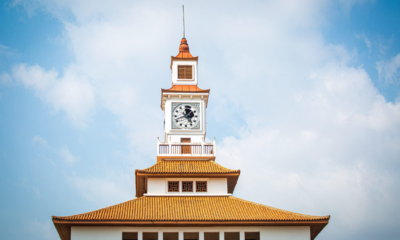
 Random Thoughts6 months ago
Random Thoughts6 months agoA Dutch Passport or a Ghanaian PhD?
-

 Foreign News9 years ago
Foreign News9 years agoEvery Animal Meat Is Not Beef! See All Their Names
-
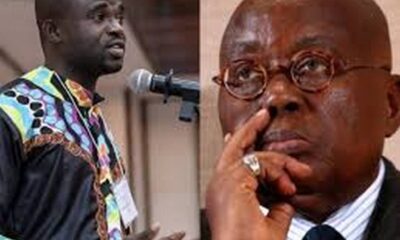
 Manasseh's Folder7 months ago
Manasseh's Folder7 months agoManasseh’s Praise and Criticism of Akufo-Addo’s Action on the SML Scandal
-
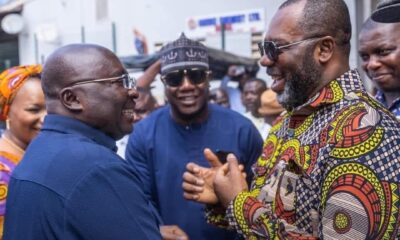
 Manasseh's Folder5 months ago
Manasseh's Folder5 months agoIs Napo Arrogant? And Does It Matter?
-
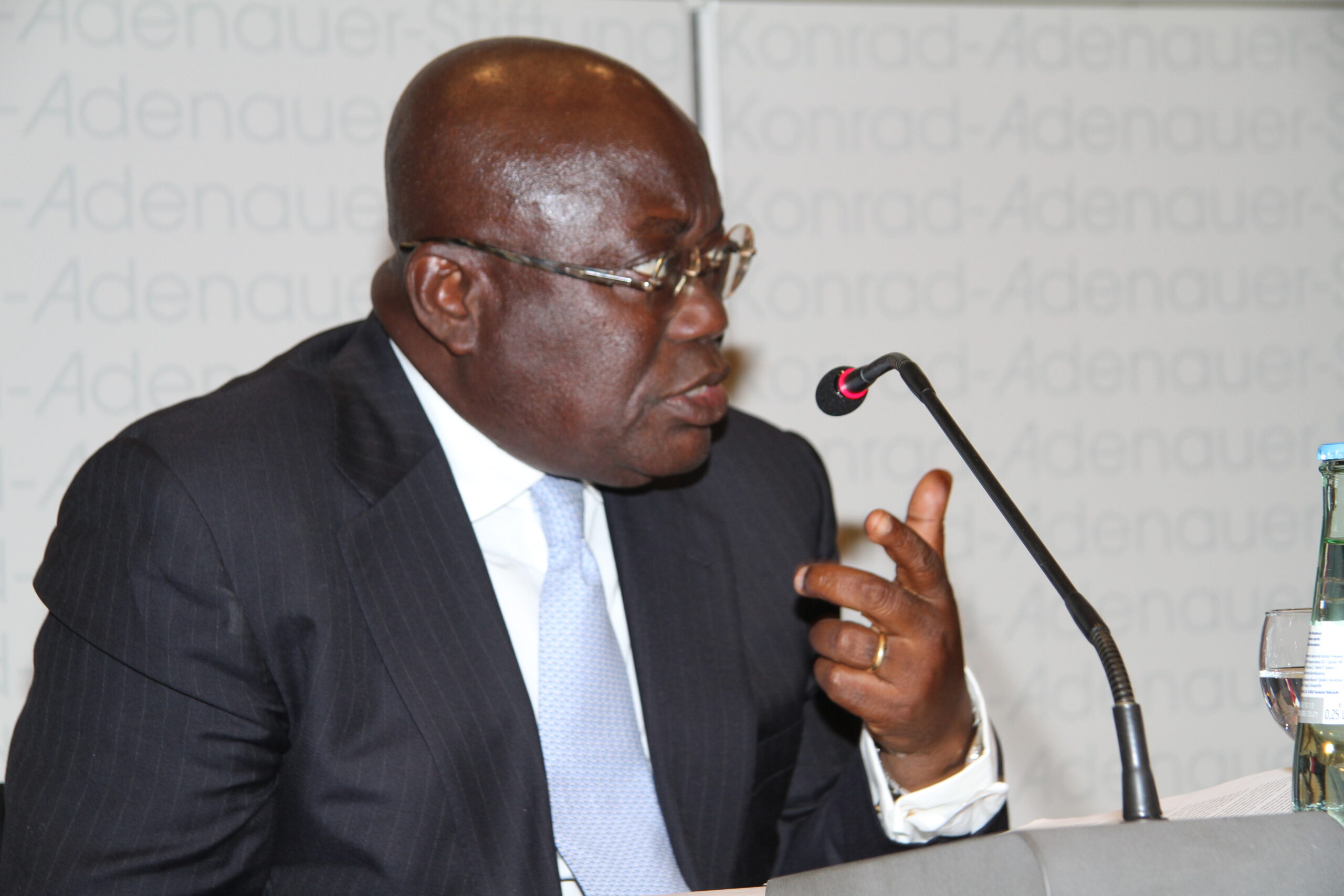
 Guest Writers8 years ago
Guest Writers8 years agoProf. Kwaku Asare writes: Nana Akufo-Addo has no law degree but…
-
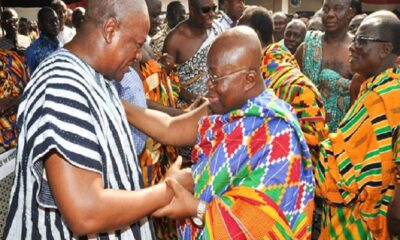
 Manasseh's Blog Posts4 months ago
Manasseh's Blog Posts4 months agoWho Started Free SHS?
-
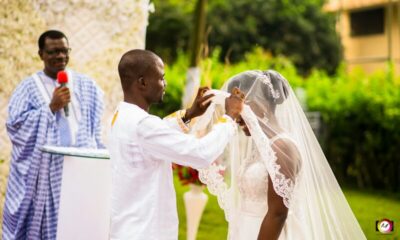
 Manasseh's Folder8 years ago
Manasseh's Folder8 years agoEXCLUSIVE PHOTOS: Manasseh Azure Awuni marries “Serwaa”
-

 Guest Writers6 years ago
Guest Writers6 years agoIs “Engagement” a Legal Marriage?